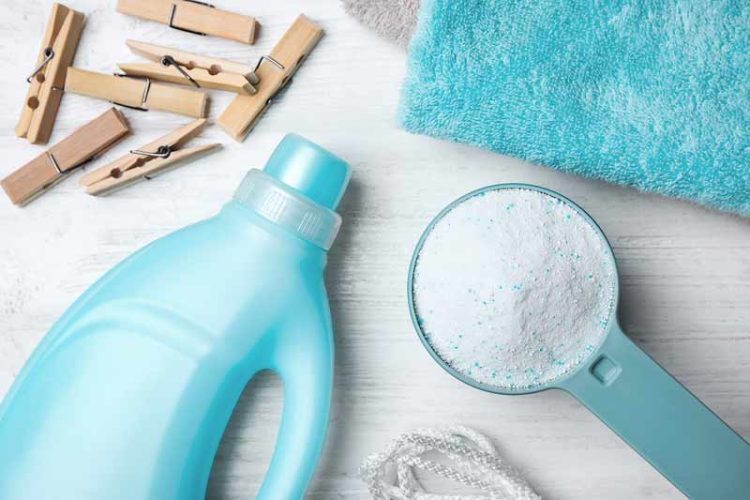The Ultimate Guide to Choosing the Best Detergent for Sensitive Skin

In a world filled with an array of laundry detergents promising pristine cleanliness, finding the best detergent for sensitive skin can be a daunting task. For those with delicate skin prone to irritation and allergies, selecting the right detergent is crucial to maintaining both skin health and clothing integrity. In this comprehensive guide, we will delve into the factors that make a detergent suitable for sensitive skin and explore some of the top contenders in the market.
Understanding Sensitive Skin:
Sensitive skin is characterized by its heightened response to environmental factors, including certain chemicals found in everyday products like laundry detergents. Individuals with sensitive skin may experience redness, itching, dryness, or even more severe reactions such as eczema or dermatitis. Therefore, the choice of laundry detergent becomes pivotal in preventing skin irritation.
Key Ingredients to Avoid:
When searching for the ideal detergent for sensitive skin, it is essential to be mindful of specific ingredients that may trigger adverse reactions. Fragrances, dyes, and harsh chemicals are common culprits known to cause skin irritation. Opting for a detergent that is free from these potential irritants is a fundamental step in caring for sensitive skin.
Top Contenders for Sensitive Skin:
- Tide Free and Gentle: Tide has long been a household name, and their Free and Gentle variant caters specifically to individuals with sensitive skin. Free from dyes and perfumes, this detergent is renowned for its ability to clean effectively without compromising on gentleness.
- All Free Clear: All Free Clear is a dermatologist-recommended detergent that is not only fragrance-free but also free from irritating dyes. This makes it an excellent choice for those with sensitivities, ensuring a thorough clean without compromising skin comfort.
- Seventh Generation Free and Clear: Seventh Generation is a brand known for its commitment to environmentally friendly products. Their Free and Clear detergent is made from plant-based ingredients and is free from synthetic fragrances and dyes, making it a suitable option for those with sensitive skin.
- Ecover Zero: Ecover Zero is a fragrance-free detergent that boasts a hypoallergenic formula. It is made with plant-based ingredients, making it a favorite among eco-conscious consumers who also prioritize skin health.
- Arm & Hammer Sensitive Skin Free & Clear: Arm & Hammer’s Sensitive Skin Free & Clear detergent is specifically designed for individuals with skin sensitivities. It is free from perfumes and dyes while still providing a powerful clean for your clothes.
Choosing the Right Detergent:
When selecting a detergent for sensitive skin, it’s crucial to consider individual needs and preferences. Here are some key factors to keep in mind:
- Fragrance and Dye-Free: Opt for detergents that are explicitly labeled as fragrance-free and dye-free. These formulations are less likely to cause skin irritation.
- Hypoallergenic Formulas: Look for detergents labeled as hypoallergenic, as they are designed to minimize the risk of allergic reactions. These formulations are often gentler on the skin.
- Dermatologist Recommendations: Consider detergents that have received endorsements or recommendations from dermatologists. These products are likely to undergo testing for skin safety.
- Plant-Based Ingredients: Detergents made from plant-based ingredients are often milder and less likely to cause irritation. They are also more environmentally friendly.
- Read Customer Reviews: Before making a purchase, read reviews from other individuals with sensitive skin. Real-life experiences can provide valuable insights into the effectiveness and safety of a particular detergent.
Conclusion:
Caring for sensitive skin requires a thoughtful approach, especially when it comes to choosing the right laundry detergent. The market offers a variety of options, each with its unique features and formulations. By prioritizing fragrance-free, dye-free, and hypoallergenic detergents, individuals with sensitive skin can enjoy clean and fresh-smelling clothes without compromising their skin health. The key lies in understanding personal needs and preferences and making an informed decision based on the ingredients and features of each detergent. With the right choice, laundry day can be a breeze, leaving sensitive skin comfortable and irritation-free.
-
What makes a detergent suitable for sensitive skin?
A detergent suitable for sensitive skin is typically free from harsh chemicals, fragrances, and dyes. It often features hypoallergenic formulas designed to minimize the risk of skin irritation.
-
Why are fragrances and dyes problematic for sensitive skin?
Fragrances and dyes are common allergens and irritants that can trigger adverse reactions in individuals with sensitive skin. Choosing a detergent without these additives reduces the likelihood of skin irritation.
-
Are all hypoallergenic detergents suitable for sensitive skin?
While most hypoallergenic detergents are formulated to be gentle on the skin, individual reactions may vary. It’s essential to check the specific ingredients and, if possible, conduct a patch test to ensure compatibility with sensitive skin.
-
Can I use a detergent for sensitive skin on all types of fabrics?
Yes, detergents designed for sensitive skin are typically safe for use on all types of fabrics. However, always follow the care instructions on clothing labels to maintain fabric integrity.
-
Are plant-based detergents better for sensitive skin?
Plant-based detergents are often milder and less likely to cause skin irritation. They are a good option for those with sensitive skin, and they also appeal to individuals looking for environmentally friendly choices.
-
Do dermatologists recommend any specific detergent for sensitive skin?
Many dermatologists recommend detergents that are free from fragrances, dyes, and harsh chemicals for individuals with sensitive skin. However, individual recommendations may vary based on specific skin conditions.
-
How can I tell if a detergent is truly fragrance-free?
Look for detergents labeled explicitly as “fragrance-free.” Manufacturers are required to disclose the presence of fragrances in their products. Additionally, check the ingredient list for any terms related to fragrances.
-
Can children and babies use the same detergent for sensitive skin?
Many detergents formulated for sensitive skin are suitable for children and babies. However, it’s advisable to choose a detergent specifically designed for infants if the need arises, as their skin is even more delicate.
-
Are there any natural remedies for soothing skin irritation caused by laundry detergents?
If skin irritation occurs, consider using a hypoallergenic and fragrance-free moisturizer to soothe the affected area. If the irritation persists, consult with a dermatologist for personalized advice.
-
Can I mix a detergent for sensitive skin with fabric softeners or bleach?
It’s best to avoid using fabric softeners or bleach with detergents for sensitive skin, as these additives can introduce additional irritants. If needed, choose a fabric softener specifically formulated for sensitive skin.
-
Are there any specific washing machine settings recommended for sensitive skin detergents?
Use the gentle or delicate cycle on your washing machine when laundering clothes with a detergent designed for sensitive skin. This helps to minimize wear and tear on fabrics while maintaining the effectiveness of the detergent.
-
Do high-efficiency (HE) washing machines require a different type of detergent for sensitive skin?
Most detergents for sensitive skin are compatible with HE washing machines. However, always check the product label to ensure that the detergent is suitable for high-efficiency machines.
Choosing the right detergent for sensitive skin involves considering individual preferences, skin conditions, and specific product formulations. Always read product labels, conduct patch tests if necessary, and consult with healthcare professionals or dermatologists for personalized advice.






